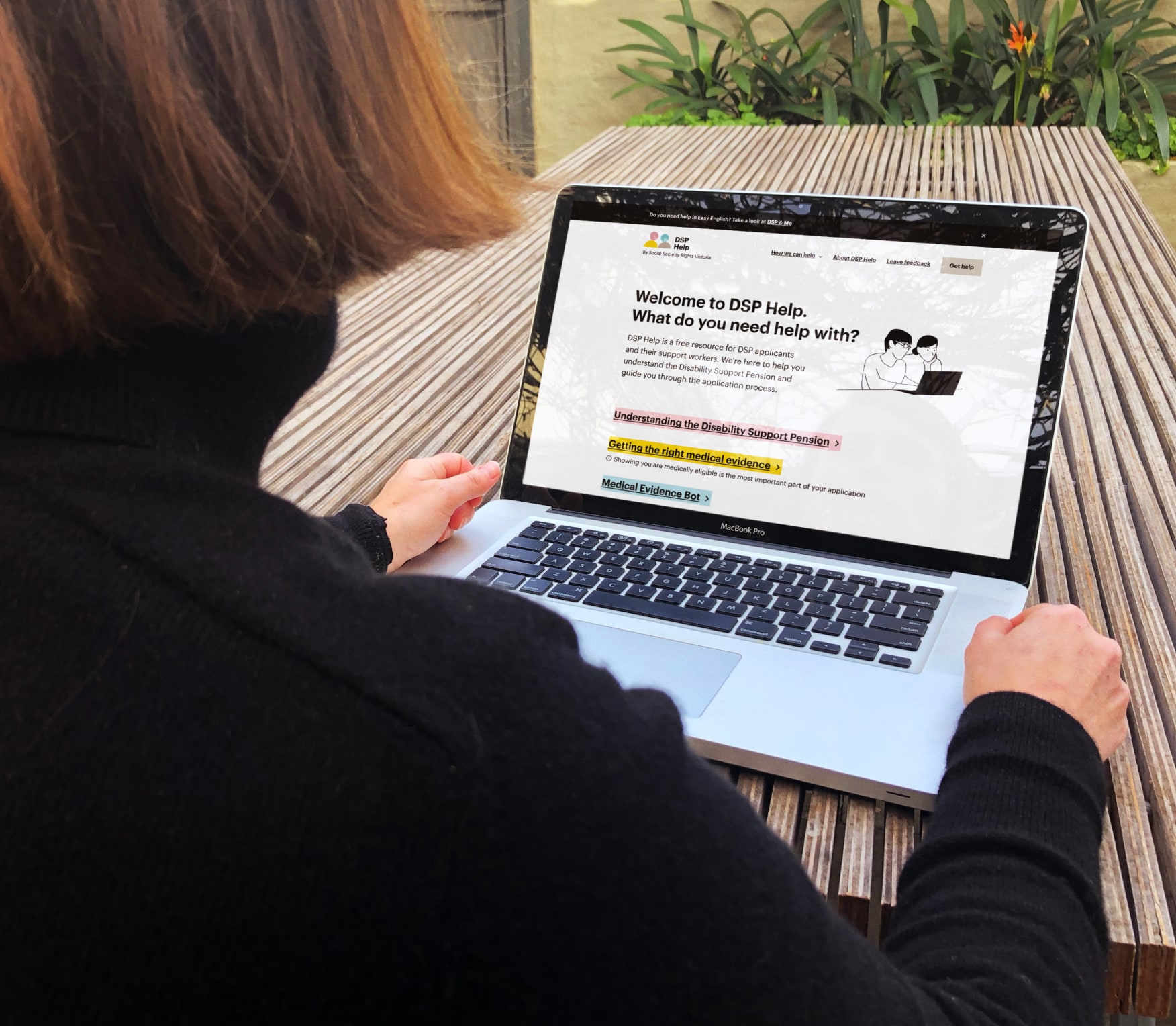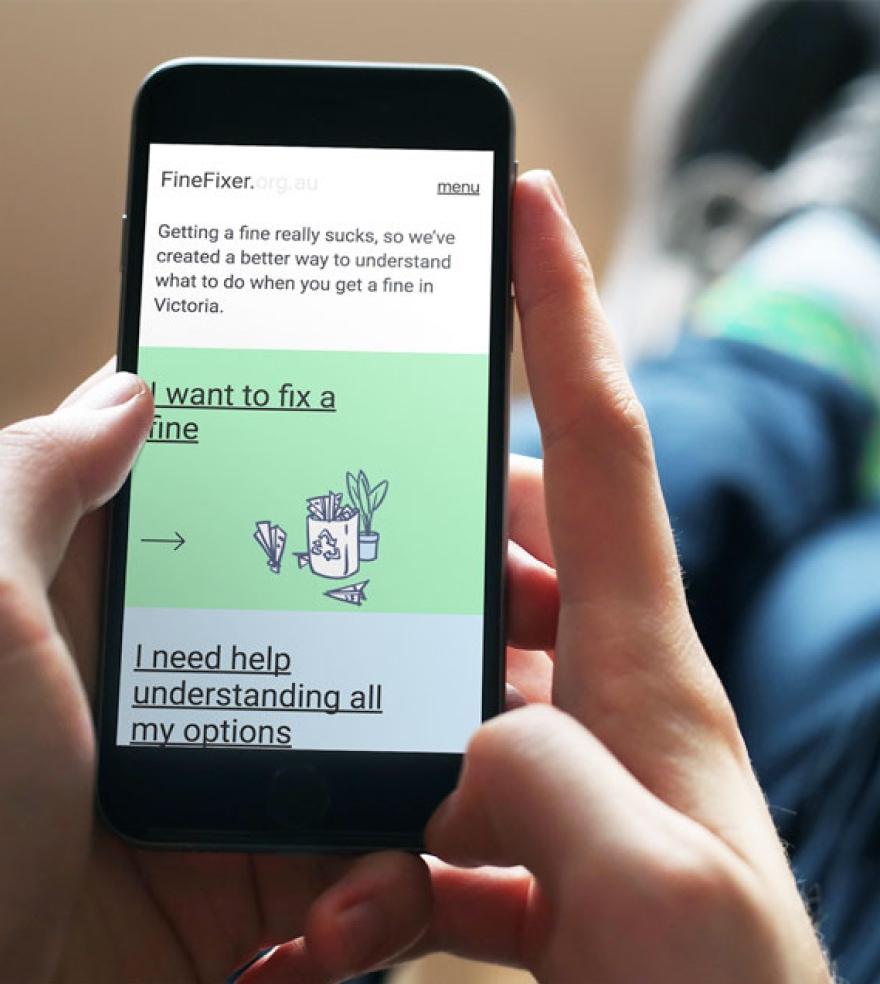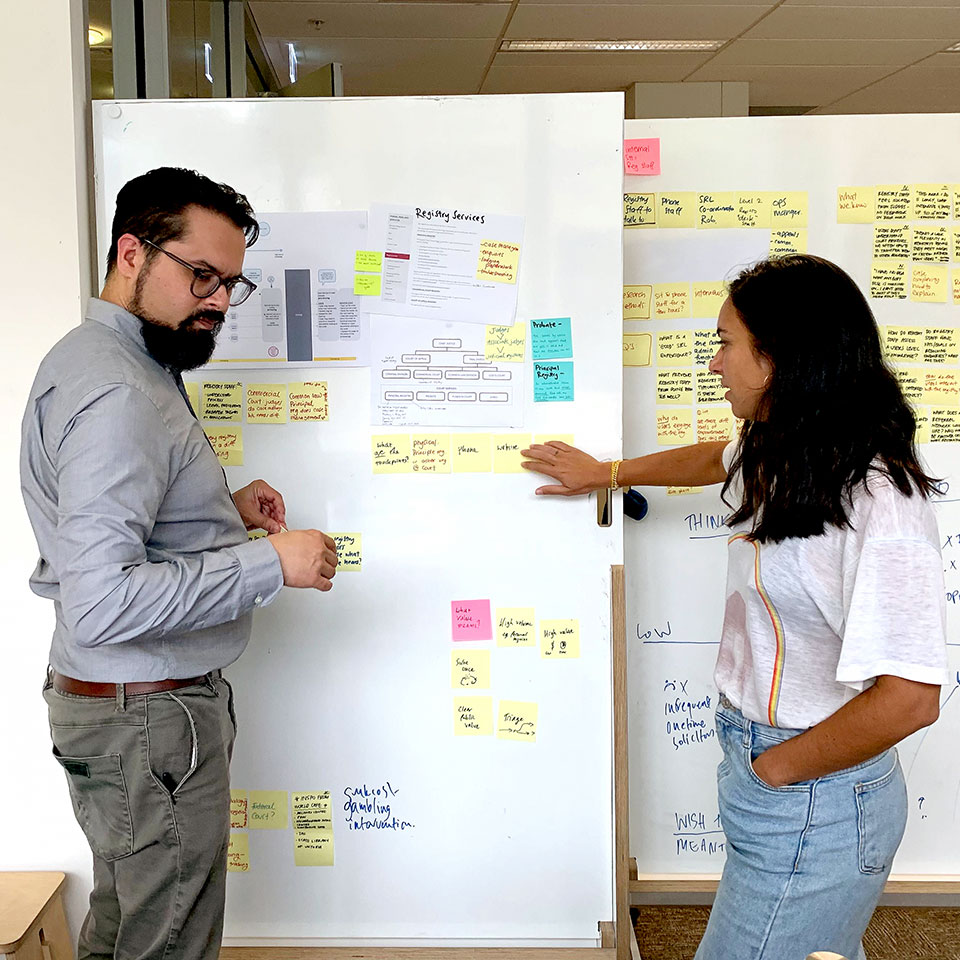Southside Justice
Designing an evaluation model that sets a community legal service pilot up for success
We worked with Southside Justice to design a theory of change for a partnership to help eligible people experiencing homelessness access disability benefits.
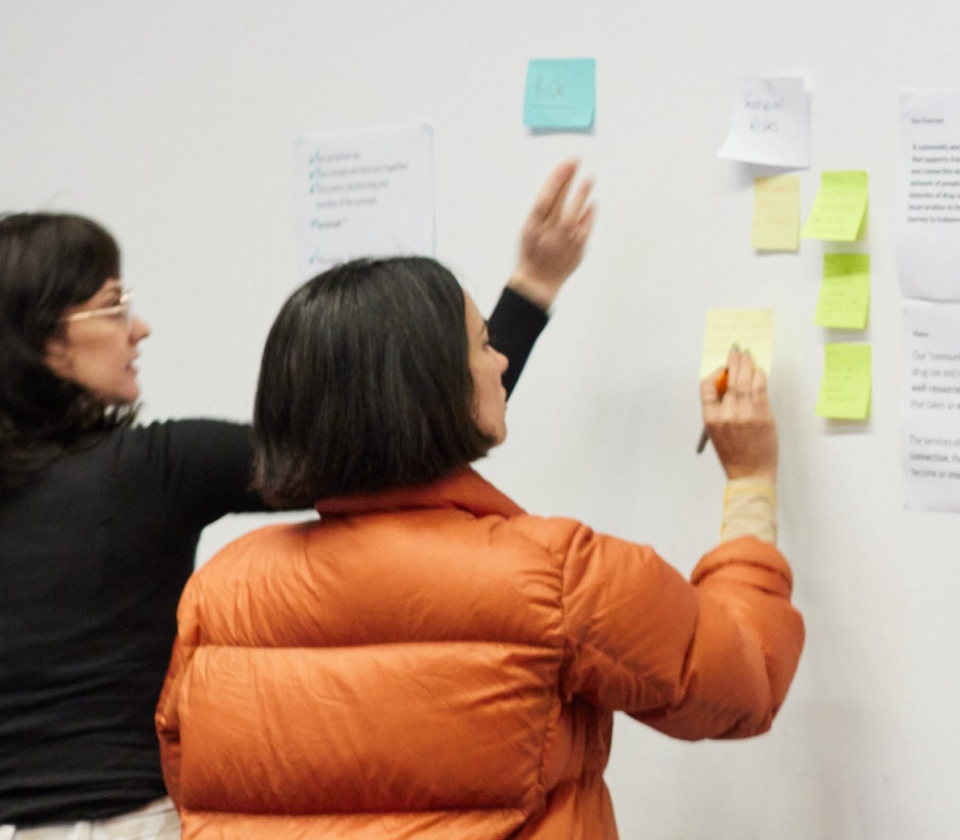
Outcomes
Working together with Southside Justice the following outcomes were achieved:
- Defined long-term goals and a clear remit for a complex community legal outreach program
- A theory of change linking program activities to long-term goals
- A co-created evaluation framework to measure the pilot program’s efficacy after 12 months
- Alignment between stakeholders from different organisations
Sectors
Distilling complexity and defining goals
The Southside Justice outreach program was a collaboration with Launch Housing. It involved lawyers from Southside (formerly the St Kilda Legal Service) working onsite at Launch Housing offices and making themselves available to help people experiencing homelessness with the complex application process for disability benefits.
The pilot outreach program involved diverse partners from legal, housing and health services aimed at solving challenges specific to people with disabilities who are also experiencing housing insecurity. With social research indicating that experiencing one increases the likelihood of experiencing the other, a core idea behind Southside’s program was that access to disability benefits may open up more possibilities for secure housing.
A theory of change sets out how and why a particular change is expected to come about. The one we developed for Southside was to pin down the goal, remit, and measurable outcomes of the pilot program. This supported a shared understanding of the pilot between partners and a framework to assess its efficacy at the 12-month milestone.
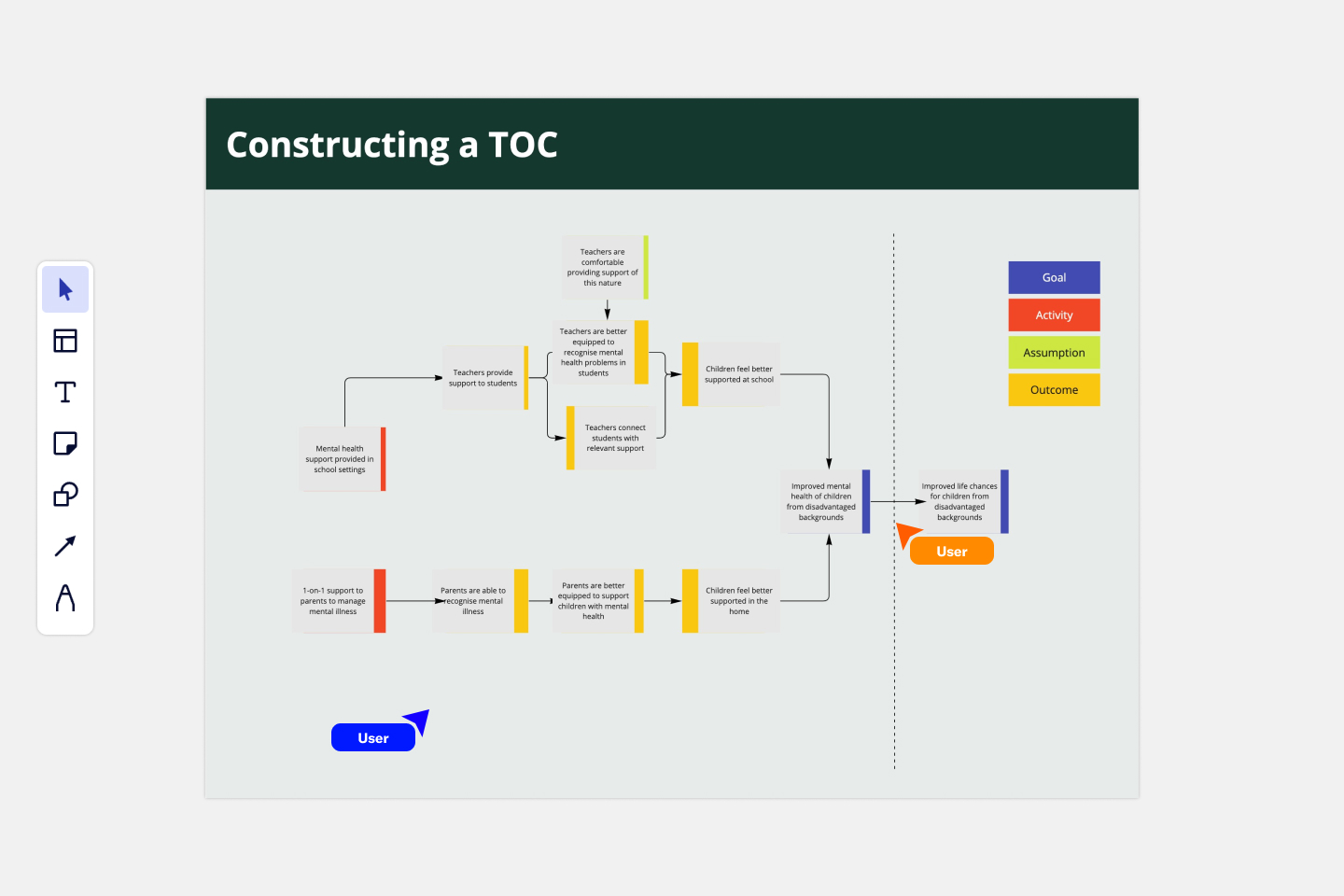

Visual maps and diagram from the workshop to create a Theory of Change.
Visual maps and diagram from the workshop to create a Theory of Change.
Workshopping a complex project
We brought extensive experience in the community legal sector to our work with Southside Justice and their partners. Previously, we’d worked on strategic design projects for the Supreme Court of Victoria, Inner Melbourne Community Legal and JusticeConnect. We are familiar with innovative justice approaches focusing on where and how legal, health and housing systems intersect.
To develop the theory of change, we designed and ran a full-day workshop with participants from Southside Justice, Launch Housing, Victoria Legal Aid and Social Security Rights Victoria to create a rough draft. We guided our participants through the basics of theory of change methods, before collaboratively defining the end goal of the program, identifying and categorising outcomes, and sorting them into logical chains. Participants discussed the activities and assumptions underpinning each outcome and agreed on timeframes and ways to collect data that would measure the efficacy of the program.

We guided participants through the basics of theory of change methods, before collaboratively defining the end goal of the program.
Charting a clear way forward
From these outputs, we crafted a theory of change and an evaluation program to present to the group. The main outcomes for Southside Justice were confidence that the program logic for the pilot would lead to the expected outcomes and the creation of a solid foundation of alignment between them and their partners.
